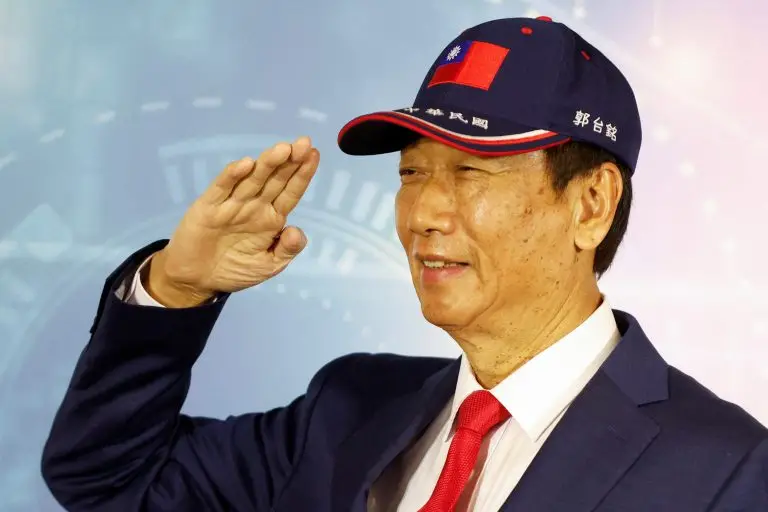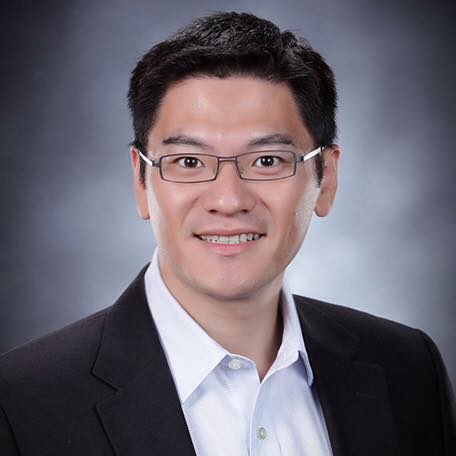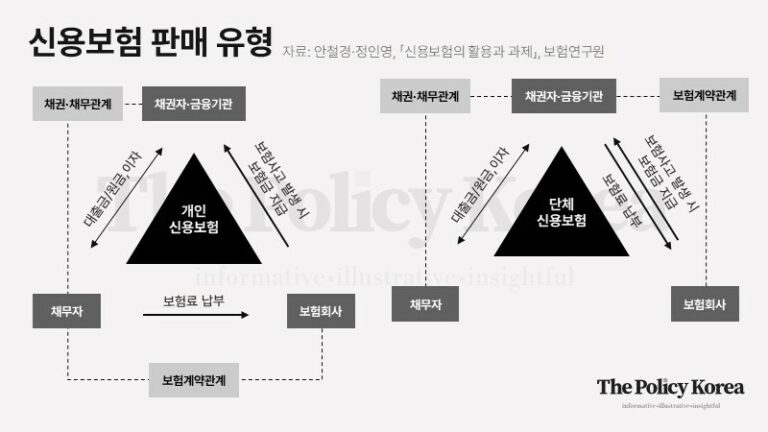[동아시아포럼] 테리 궈의 대선 출마가 대만 정계에 미치는 영향
대만 최대 전자기기 제조회사 폭스콘의 창업자 테리 궈 출마 선언 2024년 총통 선거 여당 라이칭더 후보와 야권 후보 간 4파전 예상 '하나의 중국' 원칙, 대만해협 둘러싼 갈등도 선거에 영향 미칠 듯
[동아시아포럼]은 EAST ASIA FORUM에서 전하는 동아시아 정책 동향을 담았습니다. EAST ASIA FORUM은 오스트레일리아 국립대학교(Australia National University) 크로퍼드 공공정책대학(Crawford School of Public Policy) 산하의 공공정책과 관련된 정치, 경제, 비즈니스, 법률, 안보, 국제관계에 대한 연구·분석 플랫폼입니다. 저희 폴리시코리아(The Policy Korea)와 영어 원문 공개 조건으로 콘텐츠 제휴가 진행 중입니다.
지난 8월 28일(현지 시간) 폭스콘 테크놀로지그룹의 창업자 테리 궈(Terry Gou)는 2024년 대만 총통 선거 출마를 선언한 바 있다. 궈 후보는 당시 기자회견을 열고 “총통 선거 출마를 위해 필요한 지지를 확보했다”며 “무소속 후보로 출마하겠다”고 밝혔다. 여론조사 결과에 따르면 궈 후보가 당선될 가능성은 높지 않지만, 집권당인 민주진보당의 라이칭더(賴清德) 부총통과 야당인 중국국민당의 허우유이(侯友宜) 신베이 시장, 대만민중당의 커원저(柯文哲) 당 대표가 주도하는 3파전 구도에 영향을 미칠 수 있을지 여부에 관심이 쏠리고 있다.

궈 후보 “나는 변혁적 선구자, 대만의 평화 지킬 것”
친중 성향으로 알려진 궈 후보는 지난 2020년 총통 선거를 앞두고 폭스콘 회장 자리에서 물러나 제1야당인 국민당에 전격 입당했다. 이후 총통 후보 경선에서 패배한 뒤 무소속 독자 출마를 고집했으나 결국 불출마를 선언했다. 궈 후보는 중국의 노동력과 대만의 엔지니어링 노하우를 결합해 폭스콘을 세계 최대의 전자제품 제조업체로 발돋움시켰다. 폭스콘은 애플의 최대 위탁생산업체(EMS)로 올해 2분기 순이익이 330억 대만달러(약 1조3,675억원)에 달한다.
대만 최고 부호의 반열에 오른 궈 후보는 이날 기자회견에서 “자신은 변혁을 이끌어내는 선구자”라며 “중국과 협업한 경험을 살려 대만 해협을 둘러싼 위협과 갈등으로부터 나라를 지킬 수 있다”고 주장했다. 이어 그는 “대만이 절대로 제2의 우크라이나가 되지 않도록 하겠다”며 “이어 “자신에게 4년이라는 시간이 주어진다면 대만에 50년의 평화를 가져다줄 것”이라고 강조했다. 일각에서는 친중 성향을 지닌 궈 후보가 야권 후보를 지지하는 표심을 분산시키면서 여당 후보인 라이칭더 부총통에 대한 지지율 상승으로 이어질 가능성이 있다는 분석도 나오고 있다.
그의 출마가 선거에 미치는 영향은 대만의 정치적 여건과 지정학적 관계의 맥락에서 이해할 필요가 있다. 특히 이번 선거의 쟁점은 ‘하나의 중국’ 원칙이다. 대만인들은 중국 공산당이 대만에 대한 지배력을 높여 내정에 간섭할 것을 우려하면서도 중국과 미국 사이에서 안정적이고 평화로운 외교관계를 희망하는 양가의 정서를 가지고 있다. 실제로 미국 듀크대학교가 대만 현지인을 대상으로 실시한 설문조사에 따르면 ‘중국이 자국에 대해 적대적인 태도를 가지고 있다’는 응답이 70%를 넘어섰다.
‘친중 성향’, ‘폰스콘 노동착취’ 논란도 넘어야 할 과제
궈 후보는 자수성가한 기업가로 대만 현지에서 인지도가 높지만 친중 성향을 지닌 데다 정치 경험이 부족해 자국 내에서는 비판적 인식이 팽배하다. 그가 공식적으로 하나의 중국 원칙에 대해 분명한 지지 의사를 밝힌 적은 없지만 대만의 자치를 지지하는 사람들은 그의 정치적 성향에 대해 의문을 제기하고 있다. 그도 그럴 것이 궈 후보는 그동안 서구 언론과의 인터뷰에서 미국과 미국와 중국의 외교적 견해를 모두 존중하면서도 중국에 대해 보다 친밀한 감정을 드러냈다. 그의 태도로 미뤄볼 때 사실상 ‘하나의 중국’ 원칙을 수용한 것으로 보인다. 이에 일각에서는 미·중 갈등이 이어지는 상황에서 그의 정치적 성향이 미국과의 동맹 관계를 저해할 가능성이 있다는 지적도 나오고 있다.
노동자 착취와 관련한 폭스콘의 논란도 궈 후보가 넘어야 할 과제다. 지난 2010년 한 해 동안 중국 폭스콘 공장에서 노동자 18명이 자살을 시도해 이 중 14명이 사망했다. 이들은 모두 17~25살의 젊은이들로 이 사건은 폭스콘의 노동착취 실태를 전 세계에 알리며 파장을 불러일으켰다. 2015년 폭스콘의 실태를 추적한 보고서가 홍콩에서 출간됐으며 2020년에는 해당 내용을 수정·보완한 보고서가 미국에서 재출간되기도 했다. 중국의 노동착취 관행에 대해 전 세계적으로 비판과 우려가 이어지고 있는 가운데, 궈 후보 역시 비난에서 자유로울 수 없다는 지적이다.
그간 궈 후보는 미국과 중국 사이에서 양국과의 협력관계를 능숙하게 조정해 왔다. 하지만 노동착취 논란 이후 미국 현지에서 폭스콘에 대한 평판이 악화되면서 위스콘신 공장 신축 등 대미 투자에 어려움을 겪고 있다. 당초 폭스콘의 위스콘신 공장 투자 계획은 도널드 트럼프 전 대통령 재임 초기인 2017년 7월에 발표한 것으로 트럼프 전 대통령이 재선에 실패하면서 폭스콘은 대미 투자규모를 대폭 축소했다. 이에 위스콘신주도 폭스콘에 승인했던 감세 규모를 기존 28억5,000만 달러(약 3조8,000억원)에서 8,000만 달러(약 1,050억원)로 줄였다.
최근 궈 후보는 러닝메이트 지명하며 반전을 노리고 있지만 효과가 있을지는 미지수다. 지난 9월 궈 후보는 넷플릭스 시리즈 ‘웨이브 메이커스’에서 총통 역할로 출연한 여배우 태미 라이(Tammy Lai)를 부총통 후보로 지명했다. 젊은 유권자들의 표심을 얻기 위해 정치 경험은 전혀 없지만 대만 현지에서 호감도가 높은 라이를 러닝메이트로 선택했지만 이번에는 라이의 국적이 또 다른 논란이 되고 있다. 최근 라이는 미국 시민권을 포기한 것으로 알려졌다. 대만 선거법에 따르면 이중 국적자도 선거에 출마를 할 수 있어 자격에는 문제가 없지만 궈 후보의 전략적 의도와 진정성에 의문을 야기하고 있다.
선거 통해 정계 개편 가능성, 궈 후보 킹메이커 되나
특히 최근 대만해협을 둘러싼 정세를 고려할 때 그의 출마는 정계 개편에도 상당한 영향을 미칠 것으로 보인다. 대만의 유권자들은 2024년 총통 선거가 자국의 미래에 중대한 분기점이 될 것으로 보고 있다. 궈 후보의 정치적 성향은 야권 후보인 민중당 커원저 후보와 국민당 허우유이 후보와 일치하며 이들의 지지기반과 겹칠 가능성이 높다. 반면 여당인 민진당은 역사적으로 대만의 독립을 지지해 온 만큼 라이칭더 부총통 역시 중국과의 대화는 언제나 열려있지만 대만의 자치가 우선돼야 한다는 입장을 명확히 하고 있다.
궈 후보는 당초 국민당 후보를 지지했음에도 결국 무소속 출마를 선언했다. 선거 출마를 번복할 만큼 궈 후보 개인에게는 대권 도전이 가지는 의미가 크겠지만 이같은 태도는 그의 정치적 지향점이 불분명하다는 방증이 될 수 있다. 다만 그럼에도 불구하고 궈 후보가 가지는 정치적 영향력과 잠재적 가능성을 폄하해서는 안 된다. 결과적으로 그가 총통에 당선되지 못하더라도 ‘킹메이커’의 입지를 확보할 수 있기 때문이다. 킹메이커는 야권 내부의 교착 상태를 개선하는 데 중요한 역할을 할 뿐만 아니라 경우에 따라서는 총통 당선에도 영향을 미칠 수 있다. 궈 후보는 미국과 중국을 오가며 기업을 경영한 만큼 전략적 협상에 능숙하다. 궈 후보의 선거 캠페인을 보더라도 그가 얼마나 유권자들과의 소통에 능숙한지 알 수 있다. 그는 자신의 중국 이름인 궈타이밍을 활용해 ‘좋은 타이밍(good timing)’을 모토로 내세웠는데 이는 유권자들의 지지를 유도함과 동시에 지금이 정권 교체의 적기임을 시사한다.
현재 대만의 정계 구도로 볼 때 이번 총통 선거가 궈 후보의 정치적 위상을 확보할 수 있는 유일한 기회가 될 것으로 보인다. 만약 이번에 정권 교체가 이뤄지지 않는다면 궈 후보가 내세운 전략과 공약들이 적용되기는 어렵기 때문이다. 하지만 그가 선거에서 당선되지 않더라도 교체된 정권에서 국민당이나 민중당 등 현재 야권에 합류할 경우 궈 후보는 새로운 정부에서 자리를 확보하고 나아가 자신의 정치적 야망을 추구할 수 있는 입지를 확보할 수 있다.
선거에서 작은 차이로 승리하는 사례는 흔한 일이다. 절대 강자가 없는 이번 총통 선거에서 야권의 후보 단일화는 당선으로 이어질 가능성이 높다. 궈 후보가 킹메이커에 만족하고 있는지, 아니면 실제 총통에 당선될 것이라고 믿는지는 알 수 없지만 이번 선거에서 5~10%의 지지율만 확보해도 후보 단일화를 통해 야권의 승리로 이어질 가능성이 있다. 대만의 정권 교체는 중국과 대만의 관계 개선에 중점을 둔 새로운 거버넌스로의 전환을 가능하게 하는 것은 물론, 그동안 긴장관계를 이어온 중국과의 소통을 재개함으로써 협상을 통해 대만의 주권을 보장하는 데 기여할 것으로 기대된다.
원문의 공동저자인 데니스 웽(Dennis Weng)은 샘휴스턴 주립대학교(Sam Houston State University) 정치학부 부교수이자 아시아태평양평화연구소(Asia Pacific Peace Research Institute)의 최고경영자입니다. 또 다른 공동저자인 자레드 지터(Jared Jeter)는 아시아태평양평화연구소 연구원은 현재 대만의 국립정치대학교(National Chengchi University) 석사 과정에 재학 중입니다.

How Foxconn founder Terry Gou’s candidacy is affecting Taiwan’s political landscape
Terry Gou, founder of Foxconn Technology Group, renowned for its iPhone assembly, has announced his candidacy in the 2024 Taiwanese presidential election. Gou asserts that he has amassed the requisite endorsements to run as an independent contender. While his unexpected candidacy adds complexity to a race with three other aspirants, current polls suggest limited prospects for Gou clinching the presidency.

Yet, a careful assessment suggests that Gou’s sustained involvement might influence the electoral outcome, potentially benefiting the incumbent party’s nominee, Vice President Lai Ching-te.
Gou, renowned as a business magnate, projects himself as a harbinger of transformative change, particularly in advocating enhanced cross-strait diplomacy. The implications of his candidacy on Taiwan’s political tapestry require consideration.
Gou published an op-ed on 17 July to delineate his perspective on cross-strait tranquillity. He underscored the imperative of aligning with the ‘one China’ tenet. Though this resonates with Gou’s outlook, it highlights the plateauing of his domestic endorsement. While Gou acknowledges the Taiwanese desire for peaceful relations, his stance overlooks the palpable concerns many Taiwanese have regarding China’s intensifying overtures. A study conducted by Duke University reinforces this notion, revealing that over 70 per cent of respondents view Beijing’s disposition toward Taiwan as antagonistic.
His endorsement of the ‘one China’ framework lacks clarity, casting doubts among many Taiwanese who value the island’s autonomy. Gou’s overtures to Western media, emphasising his allegiance to the ‘one China’ policy, highlight his diplomatic outloook to both Beijing and Washington. This inclination appears to lean towards a more amicable stance with China under his leadership. Yet, this positioning poses the risk of distancing Taiwan from the United States — a steadfast ally — at a juncture of heightened China–US discord.
Foxconn’s stance on workers’ rights could also pose challenges to Gou’s candidacy. With global apprehensions surrounding certain manufacturing practices in China, Gou — as the former head of one of the world’s leading manufacturing corporations — faces potential conflicts of interest. Gou’s purported ability to navigate relations adeptly with both Beijing and Washington might face hurdles given Foxconn’s tarnished reputation in the United States, particularly in light of the company’s ill-fated investment in Wisconsin.
Gou’s decision to choose Tammy Lai — known for her depiction as a presidential candidate in the Netflix series ‘Wave Makers’ — as his vice-presidential pick could appeal to the younger voters. Yet, Lai’s recent renunciation of her US citizenship, while not infringing upon any requirements set by Taiwan’s election laws, does raise questions regarding Gou’s sincerity and strategic intentions in the political arena.
While Gou faces a myriad of challenges, his involvement in the electoral process stands to profoundly shift the political landscape, particularly given his stance on cross-strait relations. This aligns him closely with the Taiwan People’s Party Chairman Ko Wen-je and Kuomintang’s Hou You-yi, suggesting a significant overlap in their support base. Conversely, Democratic Progressive Party Vice President Lai Ching-te, though open to dialogue with Beijing, stands apart due to the party’s historical backing for Taiwanese independence.
For a sizeable segment of the Taiwanese electorate, the 2024 election significantly influences the nation’s future stance on cross-strait relations. While the election holds personal significance for Gou, his initial endorsement of the Kuomintang candidate, followed by his independent bid, accentuates the volatile nature of political allegiances and underscores the elevated significance of this presidential contest.
Despite the limited prospect of a Gou-led presidency, the potential significance of his political influence cannot be rushed aside. Securing substantial support before the election might not get him the presidency but could position him as a ‘kingmaker’. Such a position might prove instrumental in resolving any deadlock within the opposition, ensuring that Gou’s candidate clinches the presidency.
Gou’s recent campaign efforts display a shrewdness in communication strategies. It involves a play on the phonetic qualities of his Chinese name, implying the English expression of ‘good timing’. This manoeuvre subtly invites support, suggesting that now is the opportune moment to rally to his cause.
If this envisioned change in governance remains unfulfilled, questions arise about whether Gou’s strategic moves serve the greater good of Taiwan. Given the current state of Taiwan’s political climate, this may be the only time Gou can establish a favourable political position. Should he drop out of the race and join the opposition party, Gou may secure a place in the new government and a strong position to pursue future political ambitions.
Aligning with opposition parties could lead to a broad coalition achieving victory in January, potentially enabling a peaceful transition into a new Taiwanese administration focussed on improving cross-strait relations. Amid heightened tensions with China, reopening proper dialogue channels will contribute to securing a safer climate for continued de facto Taiwanese sovereignty. Big elections are often won on small margins. Even if Gou only commands 5–10 percent of the vote, this could push a coalition partner to victory. It will all come down to whether Gou can settle for being the kingmaker, or if he truly believes he can become the king.







